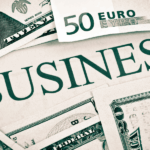Mattel’s recent statements and shifting production strategies have captured attention in the trade and manufacturing sectors. The company, known for iconic brands like Barbie, Hot Wheels, and Fisher-Price, is calling for an exemption on tariffs imposed on children’s toys. A recent summit in Washington D.C. provided a platform where the company’s CEO reinforced these views while emphasizing the significance of diversified manufacturing. New perspectives suggest that this direction may help stabilize costs and reinforce the company’s global presence.
Earlier reports highlighted the extensive impact of U.S. tariffs on Chinese products, yet children’s books remained exempt due to their informational classification. Additional sources indicated that such exemptions have long been considered an anomaly in trade policies. In related discussions among industry experts, debates continue about the optimal balance between protective tariffs and consumer product affordability.
Will tariffs on toys be removed?
Can Mattel sustain its diverse manufacturing?
Yes, proposals to eliminate tariffs on toys are receiving attention, and diversified production appears promising. Mattel is actively reducing its reliance on a single manufacturing source, aiming to have no more than 25 percent of its global production concentrated in one country by 2027. This strategy involves production in Indonesia, Malaysia, Mexico, and Thailand, where lower tariffs apply compared to China.
High tariffs on most Chinese imports contrast with the zero tariff for children’s books, which are categorized as informational materials.
There should be zero tariff on toys, globally. Toys are a foundational part of children’s development. It plays to a fundamental human behavior.
Mattel’s CEO shared these views during a summit hosted by semafor. The discussion underscored the idea that tariff policies can influence child development by affecting toy affordability and accessibility.
Mattel has strategically shifted its production model, reducing its dependency on China from 80 percent industry-wide to about 40 percent in its own operations. Only around 20 percent of its products sold in the United States now originate from China. These changes come as other nations impose a 10 percent tariff, with risks of steeper rates should reciprocal measures be reinstated.
Since taking the helm in 2018, the CEO has steered Mattel toward leveraging intellectual property for brand storytelling and expanding into film and television, as seen with the 2023 Barbie movie.
Mattel has evolved from a toy manufacturing company that was making items to become an IP company that’s managing franchises.
His leadership reflects a broader industry move to capitalize on intellectual assets while managing production risks.
The trade discussions underscore significant challenges within global supply chains. Lobbying for tariff exemptions and diversifying manufacturing sources are measures companies may consider to mitigate cost pressures. These actions provide insights for analysts evaluating risk management and competitive positioning in the toy industry.










